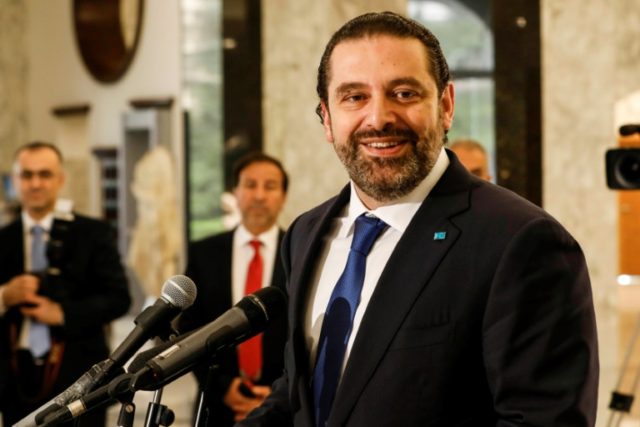Beirut (AFP) – Despite three months of wrangling, Lebanon’s premier-designate has been unable to form a new cabinet, threatening to paralyse the country’s institutions and launch its already-frail economy into a dangerous tailspin.
Lebanon is no stranger to drawn-out negotiations over forming governments, but the current delays risk squandering a precious $11 billion package of economic aid.
On May 24, after parliamentary elections, President Michel Aoun quickly nominated Saad Hariri for his third term as prime minister and tasked him with forming a cabinet.
“The objective was to form a government as quickly as possible. We had hoped in the beginning that it would be formed in two weeks,” says Alain Aoun, a member of parliament and the president’s nephew.
That new government would be able to sign off on billions of dollars in aid pledged by donor countries and international organisations at the France-led CEDRE conference in April.
But political parties have been locked in a three-month dispute over how many — and which — ministerial posts they will each be granted.
Lebanon is governed by a complex system which aims to maintain a precarious balance of power across religious and political communities.
Its major political players have always ruled through consensus, which leaves little to chance, typically includes dizzying horsetrading, and means negotiations can easily drag out.
In 2009, Hariri needed five months to pull together his first government, and it took Tamam Salam double that time to announce his in 2014.
The current delays may seem relatively harmless, but Aoun says there is more at risk now than ever before.
“We’ve definitely seen worse in the past, but the context is different now,” he told AFP.
“We’re facing an economic emergency.”
– Boost to infrastructure on hold –
The Lebanese economy’s downward spiral was brought on by the outbreak of conflict in neighbouring Syria in 2011.
Economic growth plummeted from a solid nine percent at the time and has hovered around 1.1 percent for the past three years.
Public debt stands at $82 billion, equivalent to 150 percent of gross domestic product, the third highest worldwide after Japan and Greece.
The CEDRE funds are earmarked to boost the economy, with a focus on improving Lebanon’s ailing infrastructure.
In exchange, Lebanon promised a string of reforms including tougher measures to fight corruption and reduce budget deficits.
But without a new government, the authorities cannot introduce major structural changes or sign off on the deal.
Lebanon’s parties are mainly arguing over who will head powerful ministries, including the interior, foreign affairs, and energy portfolios.
But they are also bitterly divided over what future ties with the government in neighbouring Syria will look like.
After seven years of fierce fighting, Syrian President Bashar al-Assad appears to have regained the upper hand with around two-thirds of the country under his control.
Lebanese officials have increased calls for some 1.5 million Syrian refugees in Lebanon to return home and are scrambling to ensure Beirut gets a slice of any economic activity generated by Syria’s reconstruction.
But some parties long opposed to Damascus say any new cabinet should formally adopt a policy of distancing itself from Assad.
– ‘In the red’ –
The head of powerful pro-Damascus movement Hezbollah said the thorny question should be set aside to protect Lebanon from financial disaster.
Hariri has also warned of economic collapse, saying this week that “the responsibility to accelerate the formation of the government is that of all parties, in order to avoid the economic deterioration in the country.”
In the interim, the economy has continued to worsen.
The value of cleared checks — an indicator of investment and consumption — dropped 13 percent between January and June this year, according to Lebanon’s central bank.
“The delay in the formation of the new cabinet has an undeniable impact on investments and therefore on growth,” says Marwan Barakat, chief economist at Bank Audi.
Barakat said seven of 11 economic indicators he studied were “in the red” in the first seven months of 2018 compared with the same period last year.
But those close to the government say the rescue funds from CEDRE are on the way, despite the delays.
“An extra month or two won’t compromise a strategy spread out over 10 years, maybe more,” Hariri’s economic adviser Nadim Munla says.

COMMENTS
Please let us know if you're having issues with commenting.